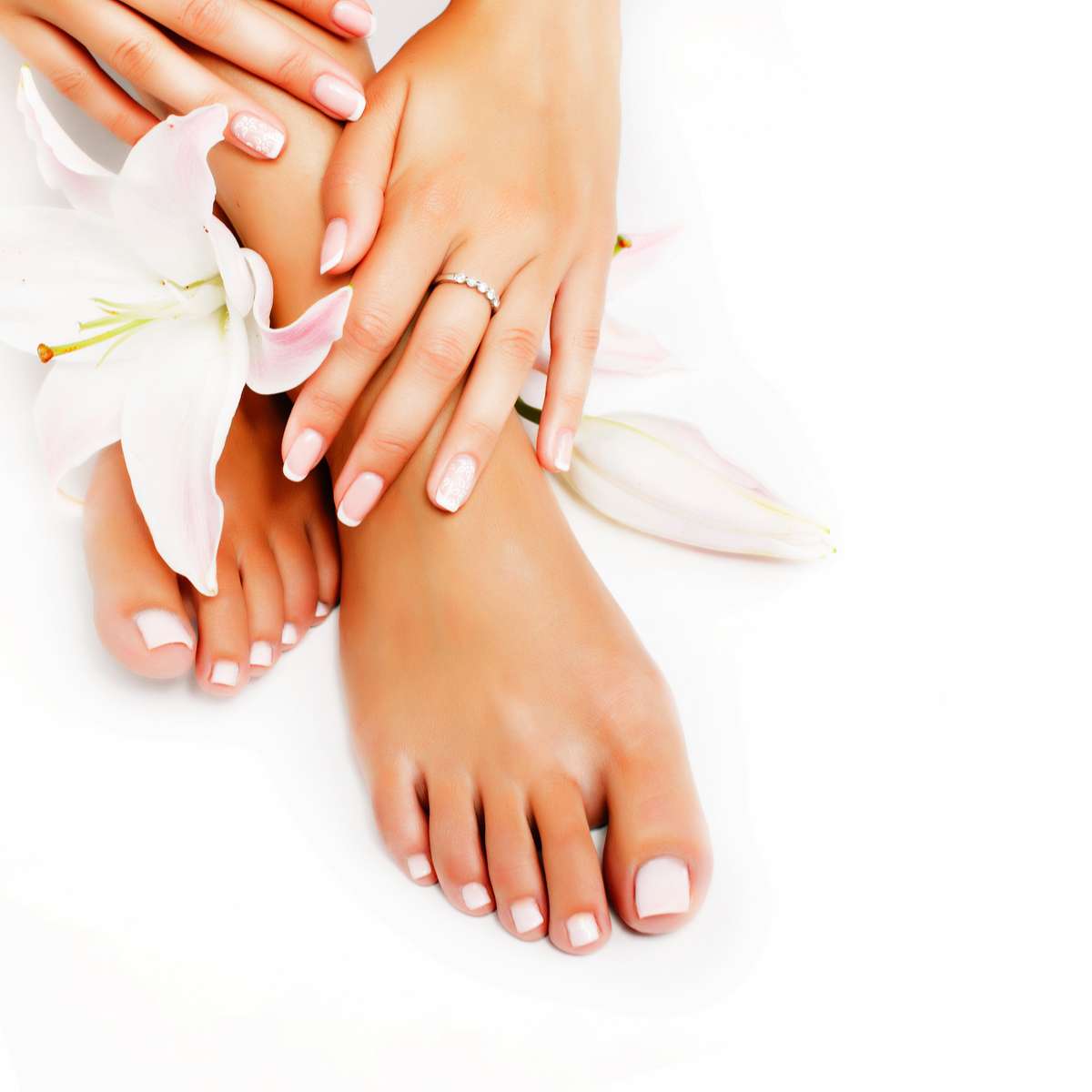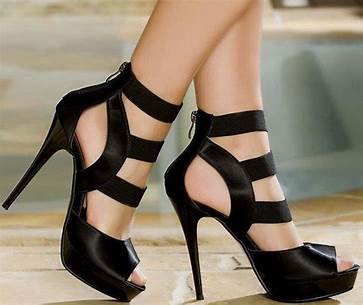
What shoes should I wear?
Every day in clinic we find patients with foot problems relating to their shoe wear.
The shoes you wear need to be suitable for the job you are doing. If you are a walker you need a good supportive shoe. The sole should be of a thickness to protect the foot from any thorn, stone or sharp object. If you walk on man made paths a good cushioned sole would be more suitable. Walking on rough paths or uneven surfaces a sole with a good grip is necessary. The shoe should be a lace up to prevent the foot slipping forward and giving stability to the whole foot. To prevent nail damage your shoes must give you room around the toes, if they are short or narrow the pressure on the nails can cause bruising and even nail loss. This damage can lead to permeant damage resulting in deformed nails. Weather proof shoes are important to prevent feet from becoming over wet or cold but must be able to breath to allow moisture out to prevent dampness which can attribute to conditions such as foot rot or athletes foot (known as Tina pedis) this fungal infection can infect the nails also.

Shoes for work. This is dependant on your job. If you are required to wear steel cap shoes it is advisable to wear the best quality possible within your budget. If your company supplies your shoes and they are not the best quality you can ask if it is possible to be paid the cost of the works shoe and top it up to purchase the best quality shoe for yourself. Office shoes should be suitable to walk to and from work as well as in the office. They need to be comfortable allowing your feet to relax when sitting at your desk so important not to be tight. If you are on your feet in a shop or warehouse you should be waring shoes similar to walking shoes with good support and reasonable soles.
What is the shoe a podiatrist does not recommended.
Any shoe which you just slip on with no support and a thin sole, flat flip flops with no sole or support. There are some on market that do have good support so not all flip flops are bad. Old shoes, which have been worn for years and the sole is so thin you can feel stones or uneven surfaces through. Shoes which have become the shape of the wearers foot. It is important for you to have your feet measured even when you are older our foot size changes with age, weight , foot conditions such as arthritis and even pregnancy can make our foot size change. Then when you have your size the style of shoe that suits your feet will be different to someone with the same size foot, your foot may be broad or narrow, your ankle can be slim or wide, the arch could be high or low. So take time to find the shoe which fits you! Poor fitting shoes can cause bunions ,ingrown nails, painful arches to name a few.

We are often asked as a podiatrist what shoe should I wear? there is no definitive shoe. Think what am I going to be doing in the shoe and choose the shoe for the job. You wouldn’t see an athlete running in wellies?
Always take you time to buy your shoes, best to go out shopping for shoes in the afternoon as your feet increase in size. Wear the hosiery you would use with the shoe, Socks for a walking shoe will be thicker than your normal socks for example. Wear the shoes around the house see how they feel when they have been on for couple of hours if they are not right take them back and try again. As long as you do not wear them outside you can change them. ( this is normal for most shops always ask what the shop policy is).

Wear with care, if you like a high heel for a night out think about taking some shoes to walk home in. Falls or twist could put you off your feet for minimum of 6 weeks. We here a Practice01 Podiatry love feet and can always advise on your shoe choice but it is up to you to wear the appropriate shoe for the situation.
All the shoes shown are an example of a type of shoe and not endorsed by Practice01 Podiatry.


